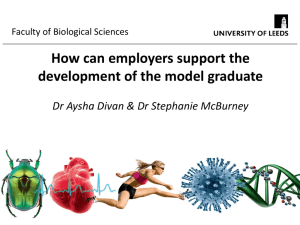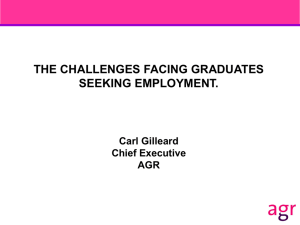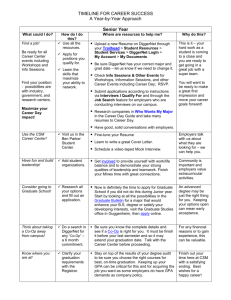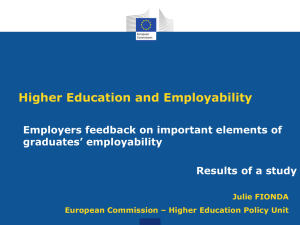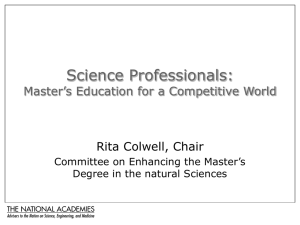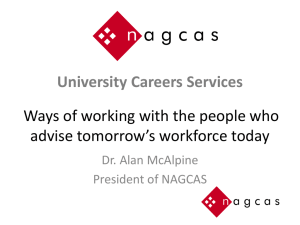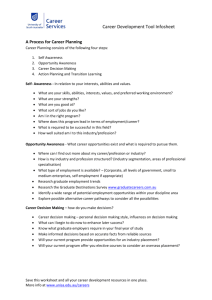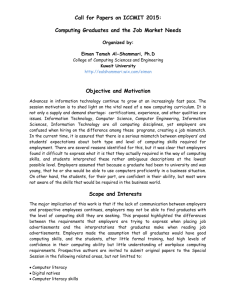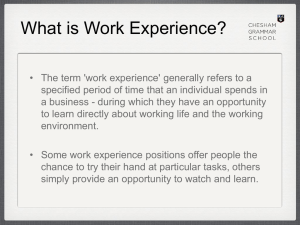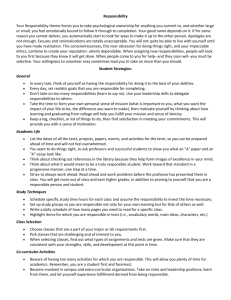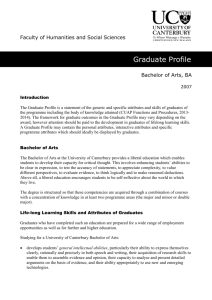Information about The University of Reading – for CVs and Covering
advertisement
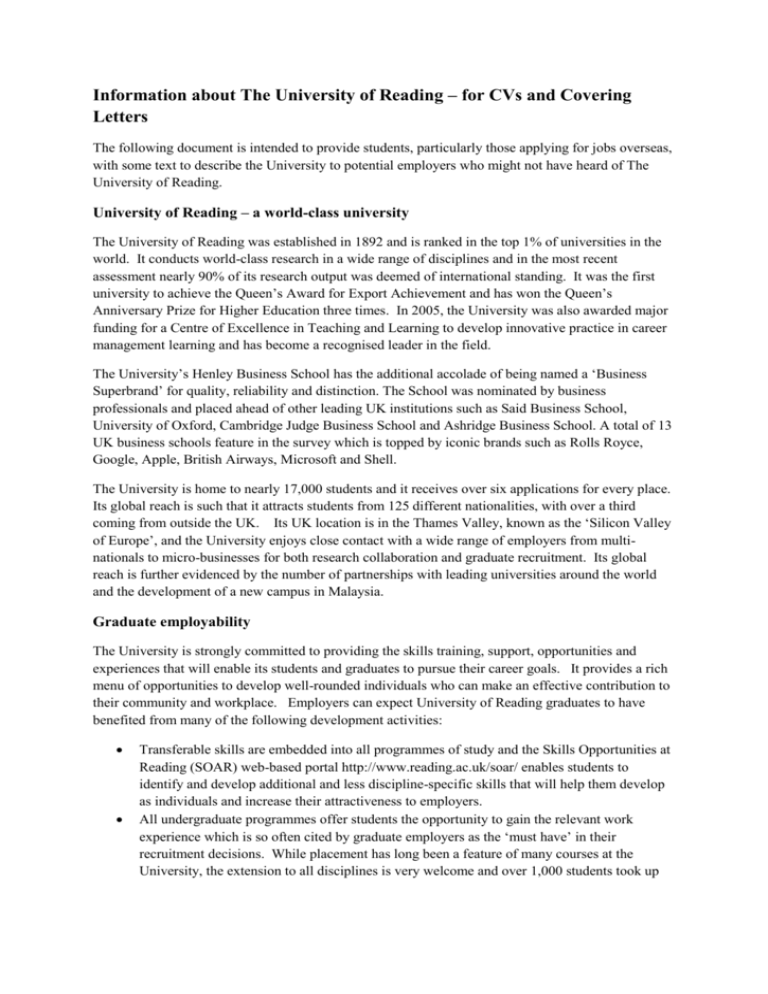
Information about The University of Reading – for CVs and Covering Letters The following document is intended to provide students, particularly those applying for jobs overseas, with some text to describe the University to potential employers who might not have heard of The University of Reading. University of Reading – a world-class university The University of Reading was established in 1892 and is ranked in the top 1% of universities in the world. It conducts world-class research in a wide range of disciplines and in the most recent assessment nearly 90% of its research output was deemed of international standing. It was the first university to achieve the Queen’s Award for Export Achievement and has won the Queen’s Anniversary Prize for Higher Education three times. In 2005, the University was also awarded major funding for a Centre of Excellence in Teaching and Learning to develop innovative practice in career management learning and has become a recognised leader in the field. The University’s Henley Business School has the additional accolade of being named a ‘Business Superbrand’ for quality, reliability and distinction. The School was nominated by business professionals and placed ahead of other leading UK institutions such as Said Business School, University of Oxford, Cambridge Judge Business School and Ashridge Business School. A total of 13 UK business schools feature in the survey which is topped by iconic brands such as Rolls Royce, Google, Apple, British Airways, Microsoft and Shell. The University is home to nearly 17,000 students and it receives over six applications for every place. Its global reach is such that it attracts students from 125 different nationalities, with over a third coming from outside the UK. Its UK location is in the Thames Valley, known as the ‘Silicon Valley of Europe’, and the University enjoys close contact with a wide range of employers from multinationals to micro-businesses for both research collaboration and graduate recruitment. Its global reach is further evidenced by the number of partnerships with leading universities around the world and the development of a new campus in Malaysia. Graduate employability The University is strongly committed to providing the skills training, support, opportunities and experiences that will enable its students and graduates to pursue their career goals. It provides a rich menu of opportunities to develop well-rounded individuals who can make an effective contribution to their community and workplace. Employers can expect University of Reading graduates to have benefited from many of the following development activities: Transferable skills are embedded into all programmes of study and the Skills Opportunities at Reading (SOAR) web-based portal http://www.reading.ac.uk/soar/ enables students to identify and develop additional and less discipline-specific skills that will help them develop as individuals and increase their attractiveness to employers. All undergraduate programmes offer students the opportunity to gain the relevant work experience which is so often cited by graduate employers as the ‘must have’ in their recruitment decisions. While placement has long been a feature of many courses at the University, the extension to all disciplines is very welcome and over 1,000 students took up placement opportunities in the first year. Placements vary in length from two weeks to one year depending on the course of study and students are awarded credits towards their degree. The Institution Wide Language Programme http://www.reading.ac.uk/iwlp/ enables students to learn a new language or to improve their existing language skills and intercultural competence, thus enabling them to operate effectively in today’s global economy. The University’s Centre for Entrepreneurship http://www.henley.ac.uk/management/research/centres/mgmt-entrepreneurship-modules.aspx provides opportunities for students of all disciplines to take enterprise, social enterprise or entrepreneurship modules and to develop a range of skills appropriate for working in and with business. Over 700 students are involved every year. A wide range of extra-curricular activities are available to students at all stages in their University career. This includes opportunities to mentor or provide peer support, to tutor in local schools, act as University ambassadors or course representatives and volunteer for student clubs and societies as well as organisations off campus. The Reading University Student Union (RUSU) http://www.rusu.co.uk/activities/skillsdevelopment/ supports many of these activities and provides associated training in skills such as communication and leadership. The Reading Experience and Development (RED) Award http://www.reading.ac.uk/internal/readingexperienceanddevelopmentaward/about/redaabout.aspx rewards students for undertaking extra-curricular activities and helps them get the most out of their experiences in relation to their professional and personal development. Over 1,000 students a year register for the RED Award. Career learning is embedded in all undergraduate programmes to enable students to reflect on the skills they have gained and to make and implement appropriate career decisions. Reading was the first university in the UK to make such provision available to all students. The Reading Researcher Development Programme (RRDP) http://www.reading.ac.uk/graduateschool/skillstrainingprogramme/gs-rrdp.aspx enables postgraduate research students to gain the additional skills that will enable them to carry out your research professionally and effectively and to be successful in their ensuing career. Reputation with employers The University is in the top 30 group of ‘High Fliers’ identified by leading UK recruiters as producing high-calibre graduates whom they are particularly keen to attract to their graduate schemes. Hence there are many opportunities for students to meet employers on campus including: • • • • • An annual autumn Careers and Placement Fair. The 2012 fair attracted 100 exhibitors and over 2000 students, making this one of the biggest events in the UK. Additional targeted careers fairs for subjects such as law, construction management and teaching. A Part-time and Vacation Work Fair, run in early October, enables students to develop their employability and find paid employment to support their studies. The ‘Headstart’ programme of careers events and evening employer presentations. These enable students to develop their skills, find out about career options and particular employers and prepare for application and interviews. Employers contribute to the career learning sessions in academic departments and many courses have employer liaison panels to advise on curriculum content and graduate employability. Graduate career outcomes The University maintains an excellent record on graduate employability as measured by the Destination of Leavers from Higher Education (DLHE) survey. In 2012, 92% of Reading graduates in the survey described themselves as being in work, voluntary or unpaid work or further study, placing the University above both the sector average and national benchmarks set for institutions of the same type. The survey also measures the quality of employment gained by graduates and showed that nearly 70% of Reading respondents were in graduate level employment or study.
